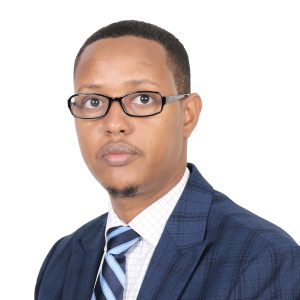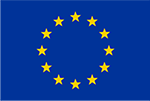What we do
In 2021, Somaliland held its first parliamentary elections in over 15 years. With previously postponed presidential elections now scheduled for 2024, tensions have been running high. There is fear that increasing grievances among one or more clans, in combination with political tensions and ecological threats, could result in violent conflict.
NIMD set up its programme in Somaliland amid these tensions in late 2022. Our aim is to prevent conflict by supporting reconciliation and trust-building among the different political actors and groups. We aim to bring together politicians from across the political spectrum in the spirit of dialogue and consensus.
We also work on democratic culture, promoting inclusive democratic values through outreach and public engagement. In this way, we hope to contribute to a conducive political environment for a free and fair electoral process in Somaliland.
In addition, to ensure long-term stability and foster trust in the political system, it is important that different groups are represented in politics and that democratic institutions can fulfil their role effectively. That’s why we provide capacity building for these institutions, and work to support women’s right to enter politics.
At NIMD, we believe that democracy starts with dialogue. Across our programmes we have seen that, when different political groups come together in dialogue – with each other, with civil society, or with their population in general – a country has a much greater chance of implementing reform, forging lasting peace, and cultivating a thriving inclusive democracy.
In Somaliland, we are working with the three political parties and ten associations through dialogue. Our dialogue process aims to provide a safe space for the parties to work together to build trust and respect. Through our introduction meetings, joint retreat and planning for future long-term dialogue, we place a focus on mitigating violence and releasing (pre)electoral tensions while identifying ways to address these tensions.
The parties work together on specific issues where they can find consensus and common ground, ranging from Somaliland’s economic agenda, to natural resource management and mitigating droughts, to the institutional changes required for adopting a regional taxation system.
Lastly, we hold regular multi-stakeholder dialogue meetings between political actors, clan elders and civil society representatives. These meetings provide a unique opportunity for political and civic leaders to discuss key issues in their community, and for civil society to set out the recommendations hailing from their dialogue sessions and lay the foundation for implementation with political leaders.
Ensuring the next generation has the skills, knowledge and networks to prepare them for a career in politics or civil society is crucial for future peace and stability.
Twice per year, NIMD’s Somaliland Democracy School welcomes young politically motivated women and men for five days of interactive and tailor-made activities. Over the course of the Academy, the participants – who hail from different backgrounds and political parties – get to know each other. They start to form relationships based on trust and respect, which will form the basis of a cross-party network for their future political careers.
Together, they learn relevant skills and acquire tools related to policy making, negotiation, coalition building, media engagement, debate and dialogue.
In addition to practical learning, the Democracy School also brings the participant closer to political decision-makers and clan elders, to enlarge their network and expand their knowledge. Through networking and linking events, the participants share their ideas on policy and legislation, giving the elders and decision-makers a valuable insight into youth perspectives.
In the 2021 elections, no women were elected to Somaliland’s Parliament, despite numerous efforts and regulations. The issues and interests of the entire Somaliland society are not reflected in parliament because the majority of the population is essentially absent from political decision-making.
Barriers to women in politics are caused by myriad challenges linked to culture, gender norms and lack of resources. NIMD is working on multiple levels to break down these barriers. From fostering a culture of inclusiveness in our Democracy Academy, to supporting democratic institutions and political parties to work on their internal structures and support women politicians.
In addition, we work directly with aspiring and current women politicians in our Women Leadership Programme. The programme imparts practical skills necessary to take up decision-making positions. Through training sessions and international exchanges, the women are better empowered to counter gender stereotypes and navigate the male-dominated political environment.
After the Women Leadership Programme, participants will share their newly gathered insights and experiences during public sessions on the role of women in politics. By sharing their knowledge, ideas and best practices, the participants in the programme become sources of inspiration and encouragement for other aspiring women politicians in Somaliland.
For democracy to thrive, politicians and political parties must have the capacity, knowledge and skills to responsive to the needs of their citizens. In Somaliland, NIMD supports political parties with capacity building and organizational support, as well as training on crucial issues including economic diversification, environmental security, conflict resolution, taxes and financial management.
In addition, we work to close the gap between politicians and the general population. Through broad and wide-reaching campaigns, where we work closely with local civil society and media organizations, we inform and engage the public on democratic processes. We provide materials that help people to understand how their democracy works (for example, the role of the Parliament and the separation of powers) and enhance democratic values such as gender equality and accountability. In addition, we provide specific tools to help the population to understand their voter rights and the election process.
Lastly, we organize democracy festivals in local communities, where we use art to open up the conversation with local people about the democratic system and democratic values. In an effort to harness the voices of diverse groups across Somaliland, the central question of these democracy festivals will be ‘what does democracy mean to you?’.
By providing the general public with tools and information to understand and engage in their democracy, we hope to build an atmosphere of trust and accountability between people and their political representatives
Meet the team


Who we work with

